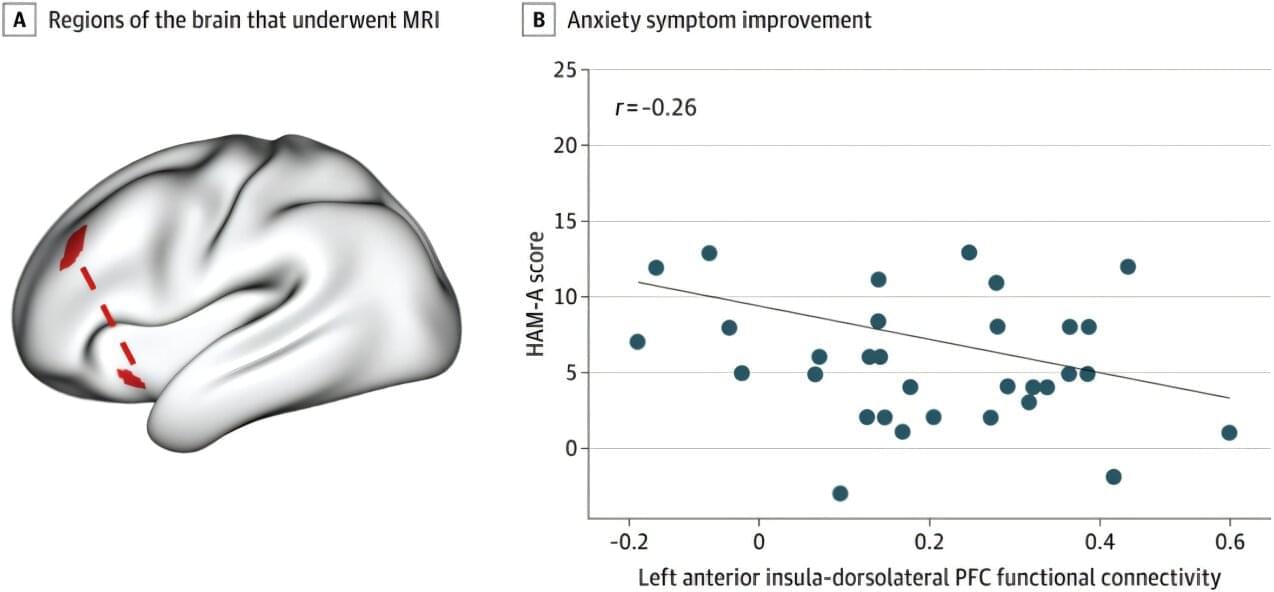The preliminary study suggested that young people with weaker connections between two brain areas involved in both attending to and regulating responses to anxiety were more likely to benefit from a self-guided anxiety care app than those with stronger connections.
The study, published in JAMA Network Open, looked at data from a subset of clinical trial participants who agreed to undergo a brain MRI before using the anxiety care app developed by the investigators.
